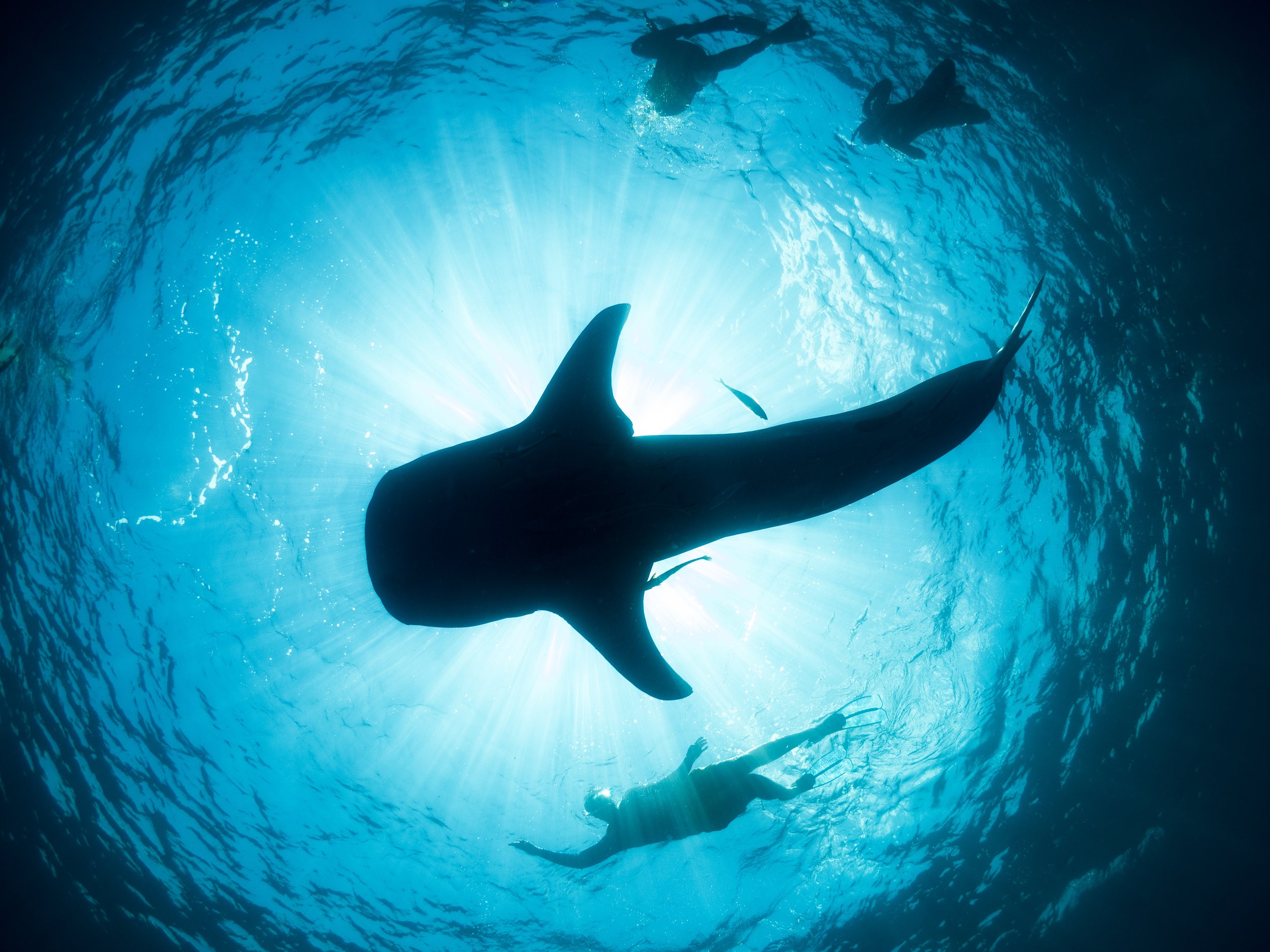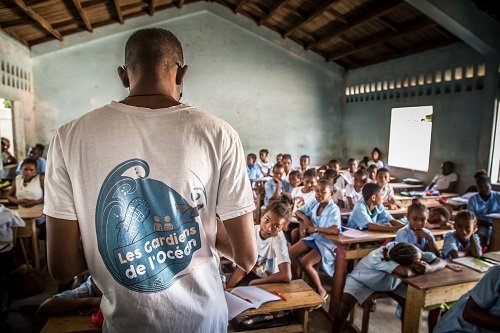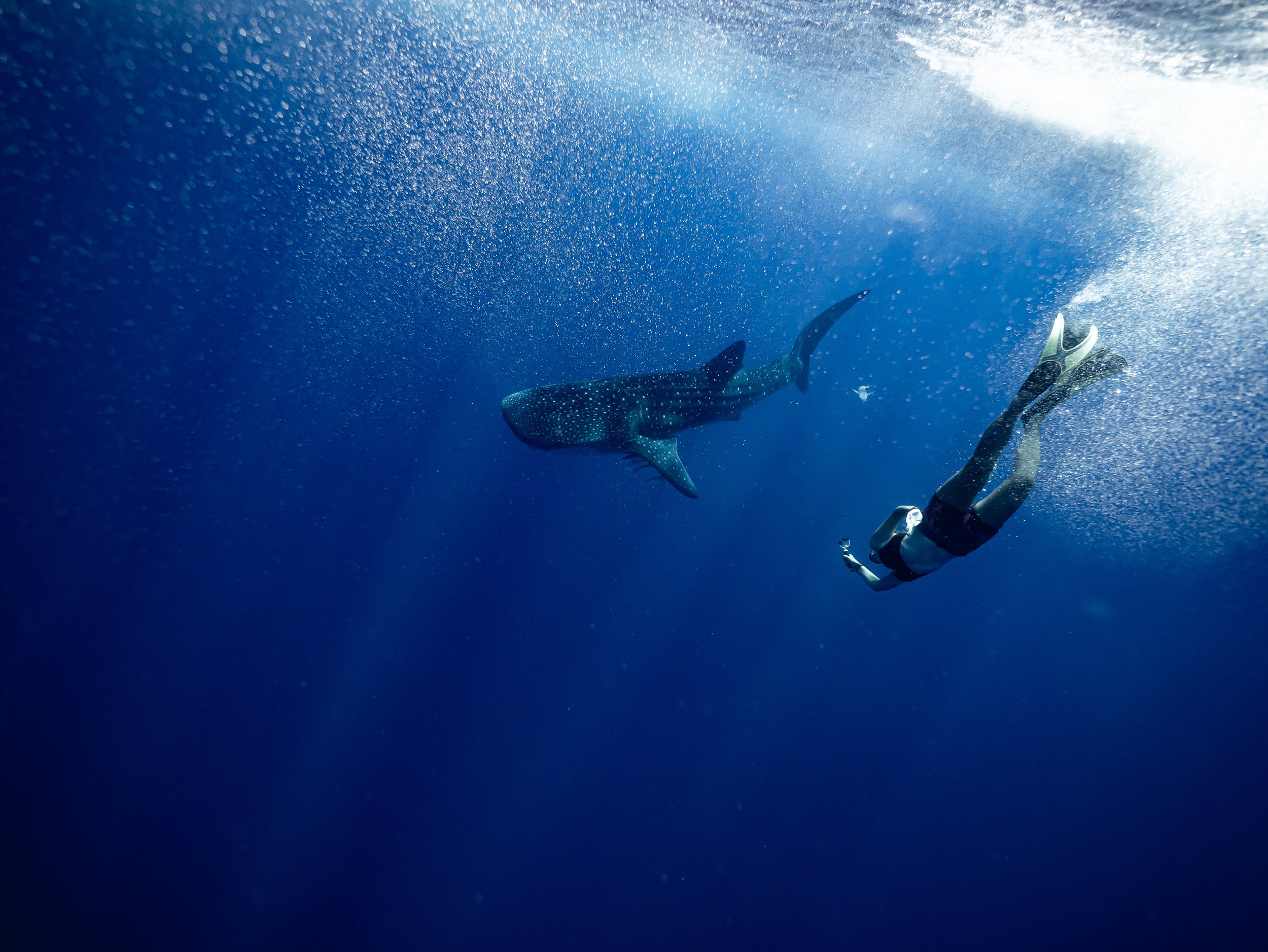
Global Whale Shark Program
The Madagascar Whale Shark Project
What’s this project about?
The Madagascar Whale Shark Project is a collaborative project focusing on whale sharks and other megafauna species in northwestern Madagascar, centered on the island of Nosy Be.
Started in 2016, working with citizen scientists within the marine tourism industry, the MWSP has since expanded to become an integrated research, education, and conservation project spanning multiple species in this global biodiversity hotspot.
Key successes to date:
Identified almost 500 whale sharks off Nosy Be, contributing to our understanding of their population.
Enshrined the whale shark tourism code of conduct in Madagascan law, making it the standard operating procedure within the local ecotourism industry.
Generated over $1 million annually for the Nosy Be economy through whale shark ecotourism.
Established Nosy Be as an IUCN Important Shark & Ray Area
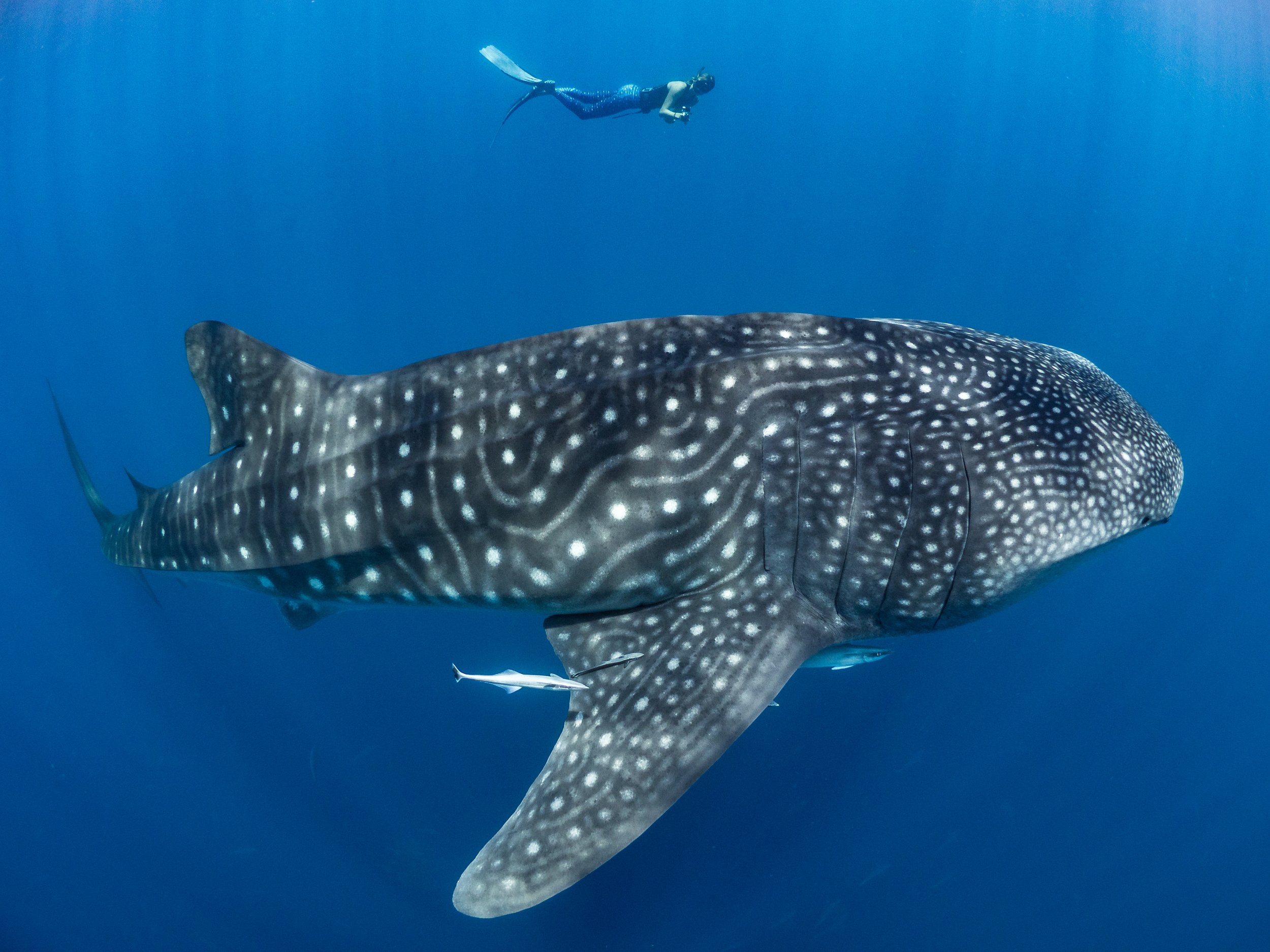
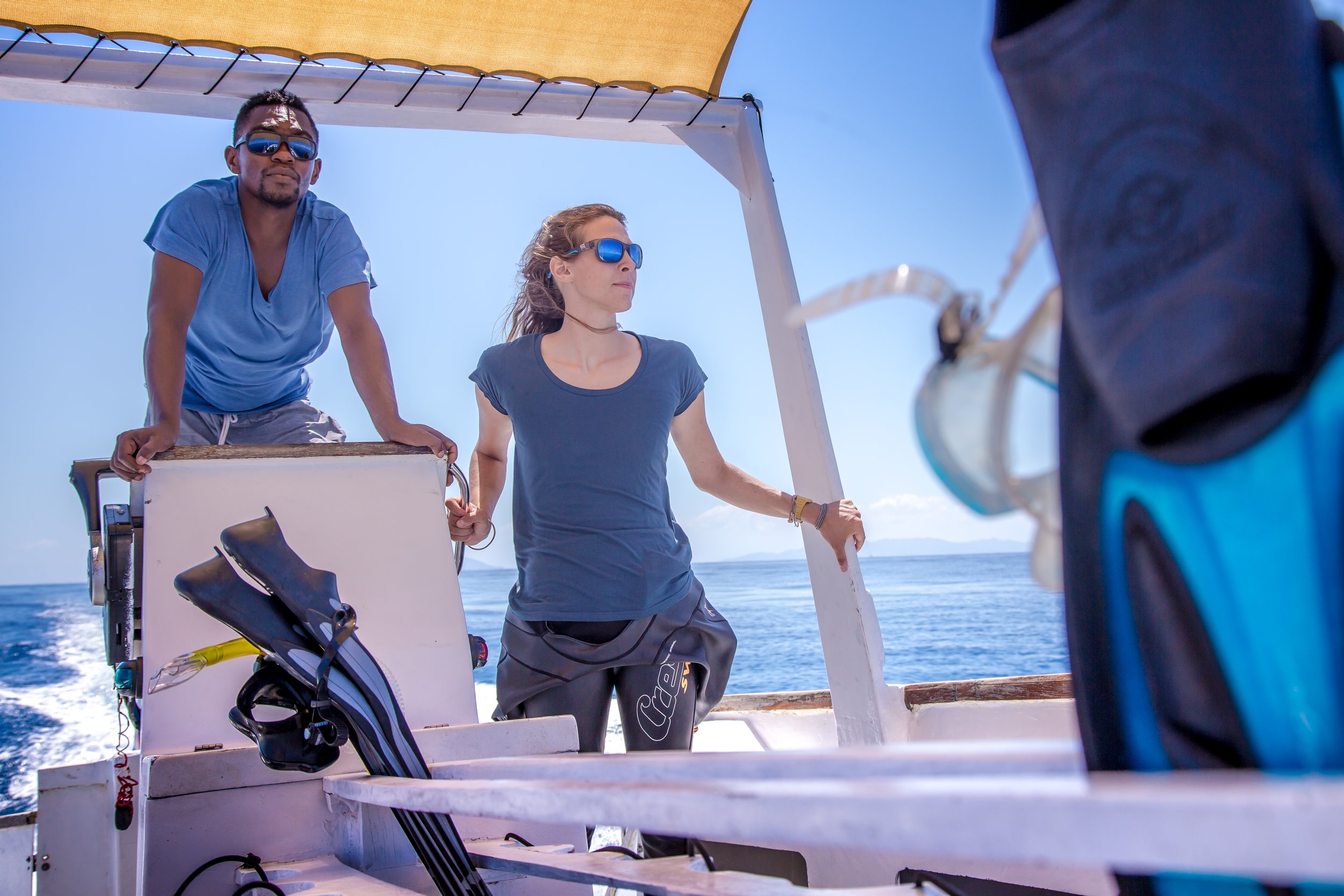
Watch
Learn more about the Madagascar Whale Shark Project
Project Overview.
Madagascar Whale Sharks.
The Madagascar Whale Shark Project includes population ecology, tagging and tracking, and ecotourism, all aimed at understanding and protecting the whale sharks of Nosy Be.
Population ecology
Photo-identification has identified almost 500 whale sharks off Nosy Be, with some sharks having been present for well over a decade. The Nosy Be aggregation is biased towards juvenile male sharks, who visit seasonally to feed on baitfish and zooplankton.
Tagging and tracking
Satellite tracking has shown that some sharks make substantial movements away from Nosy Be, with one traveling to southern Madagascar before returning to Nosy Be, more than a 4,000 km round-trip. This work helped us identify the high-use area for whale sharks around Nosy Be itself, which is now a focus for more detailed studies on residency using passive acoustic tags. In addition, several satellite-tagged sharks from Nosy Be spent considerable time on the surface further south on the Madagascar ‘mainland’, indicating that a second hotspot for the species is present.
Ecotourism
A code of conduct has been developed and implemented within the whale shark tourism industry, and now formalized in Madagascan law, to apply international best practices and avoid negative impacts on the sharks.
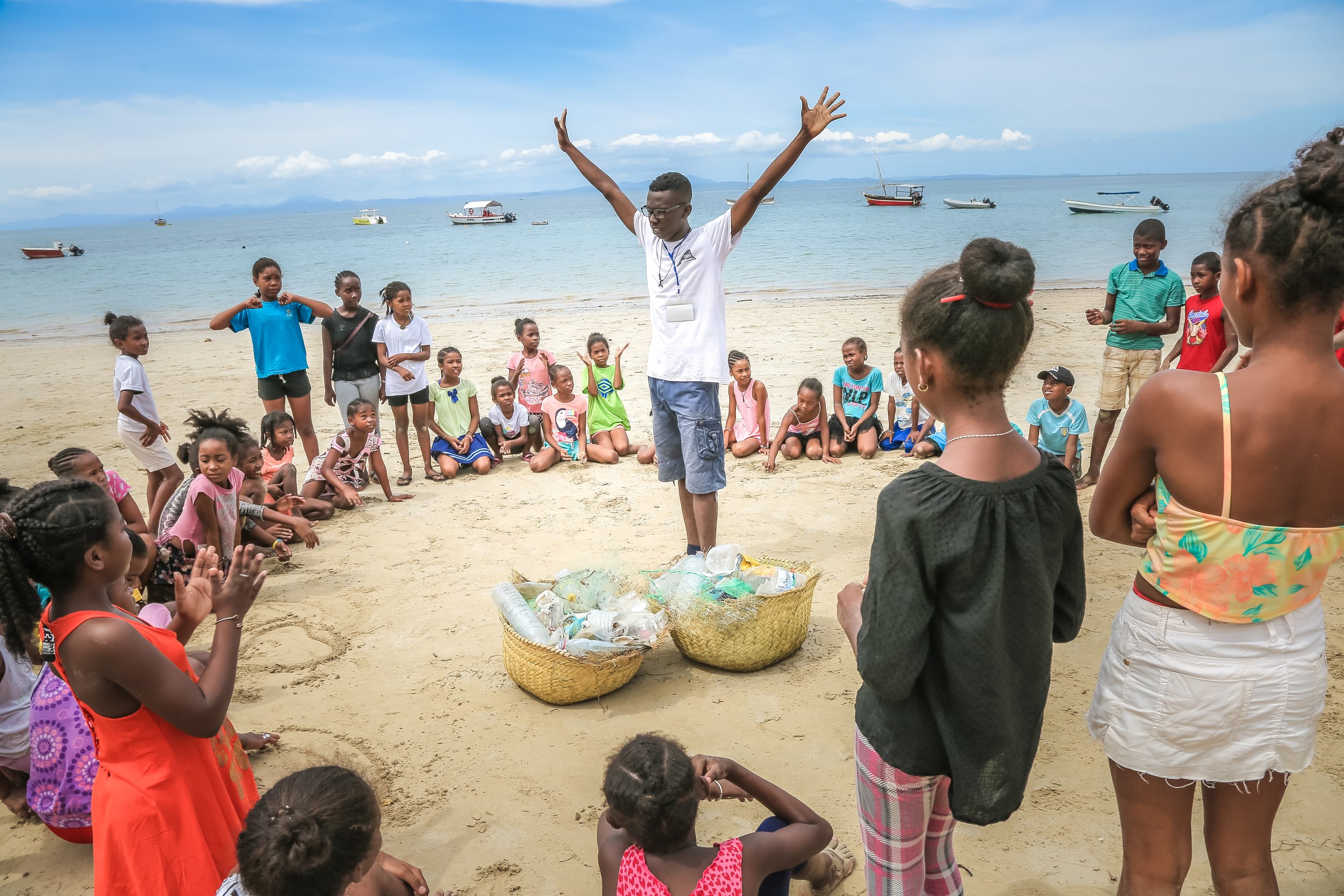
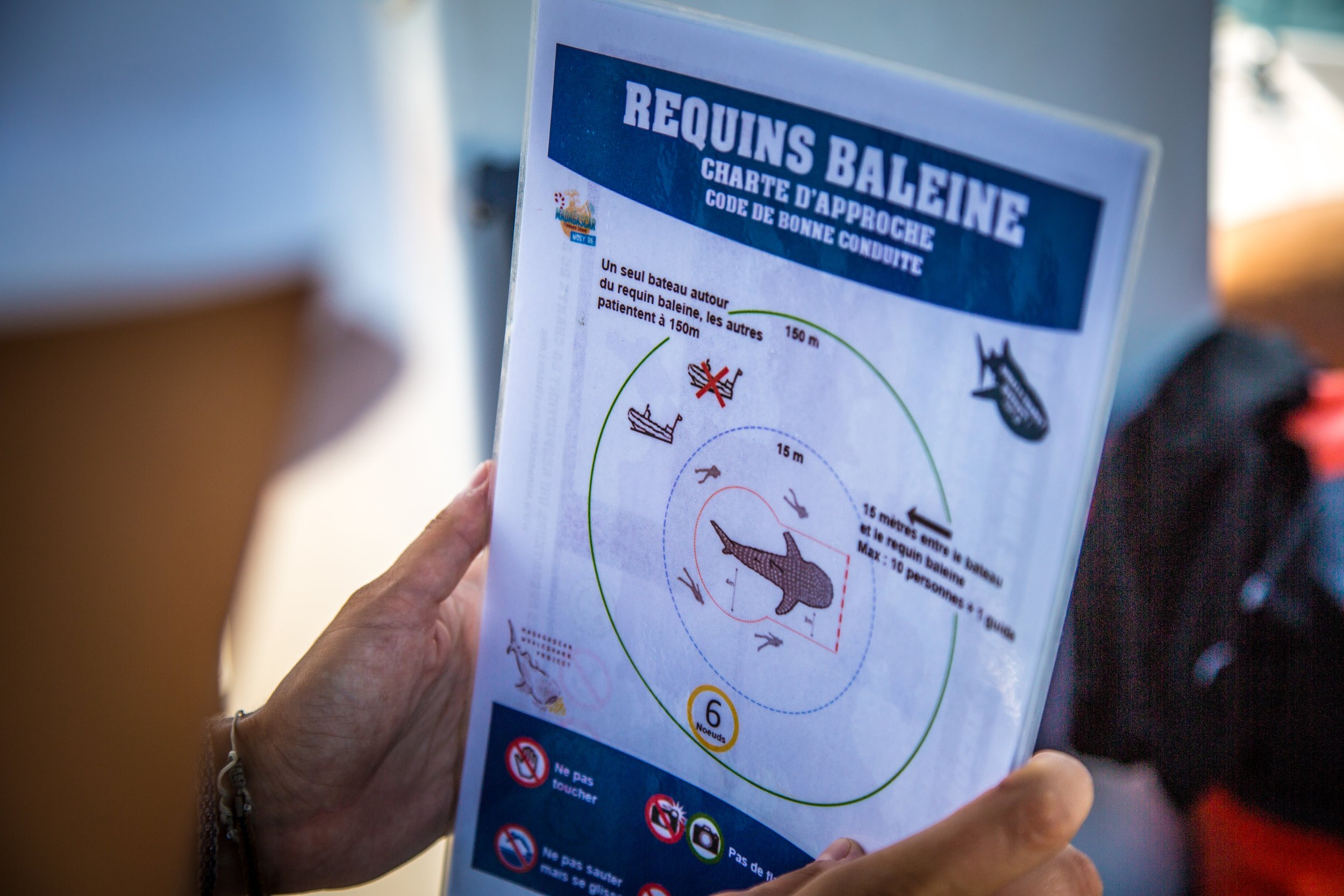
MMF Project Team
-

Stella Diamant
MMF RESEARCH ASSOCIATE
Stella, a dedicated biologist holding an MSc from Imperial College London, established the Madagascar Whale Shark Project in 2016 following her inspiring encounter with a whale shark in Nosy Be. As the project lead, her primary focus is on collecting ecological data, advocating for sustainable management, and fostering education within local communities and the wider public.
Full profile -

Dr Simon Pierce
CO-FOUNDER / PRINCIPAL SCIENTIST
Dr Simon Pierce is a pioneering researcher and global leader in whale shark conservation. Simon co-authored the first-ever scientific textbook on whale sharks in 2021, led the recent global conservation assessment of the species, and serves as a member of the IUCN Shark Specialist Group.
-

Dr Clare Prebble
PRINCIPAL SCIENTIST
Dr Clare Prebble has pioneered the emerging field of biochemical ecology and its application to movement and feeding studies, completing her PhD on whale sharks in 2018.
-

Dr Chris Rohner
PRINCIPAL SCIENTIST
Dr Chris Rohner completed his PhD on whale sharks in 2012, the first doctoral study on the species in Africa. Chris is an international expert in satellite tracking, population modeling, and shark ecology.
Media
Forbes. Madagascar Is A Global Hotspot For Endangered Whale Sharks
BBC News. Madagascar emerges as whale shark hotspot
Seven Seas Media. Madagascar Whale Shark Tourism Valued at $1.5M Amid Calls for Stronger Protections
Dive Magazine. Calls for Madagascar Whale Shark Protection After Study's $1.5Million Valuation
Mongabay. Madagascar: Where young whale sharks party
Oceanographic Magazine. Reshaping whale shark tourism in Madagascar
X-Ray Mag. Madagascar emerges as hotspot for endangered whale sharks
Oceanographic Magazine. Madagascar emerges as whale shark hotspot
Funders
Aqua-Firma
Shark Foundation
Waterlust
Publications
Improving sightings-derived residency estimation for whale shark aggregations: A novel metric applied to a global data set. Araujo G, Agustines A, Bach SS, et al. Frontiers in Marine Science.
Global collision-risk hotspots of marine traffic and the world’s largest fish, the whale shark. Womersley FC, Humphries NE, Queiroz N, et al. Proceedings of the National Academy of Sciences.
Rhincodon typus, Whale Shark, Marokintana. Diamant S, Kiszka JJ, Pierce SJ. The New Natural History of Madagascar. Goodman SM (ed).
Regional variation in anthropogenic threats to Indian Ocean whale sharks. Reynolds SD, Norman BM, Franklin CE, et al. Global Ecology and Conservation.
Population structure, residency, and abundance of whale sharks in the coastal waters off Nosy Be, north-western Madagascar. Diamant S, Pierce SJ, Rohner CA, et al. Aquatic Conservation: Marine and Freshwater Ecosystems.
Economic value and public perceptions of whale shark tourism in Nosy Be, Madagascar. Ziegler J, Diamant S, Pierce SJ, Bennett R, and J Kiszka. Tourism in Marine Environments.
Movements and habitat use of satellite-tagged whale sharks off western Madagascar. Diamant S, Rohner CA, Kiszka JJ, et al. Endangered Species Research.es R
